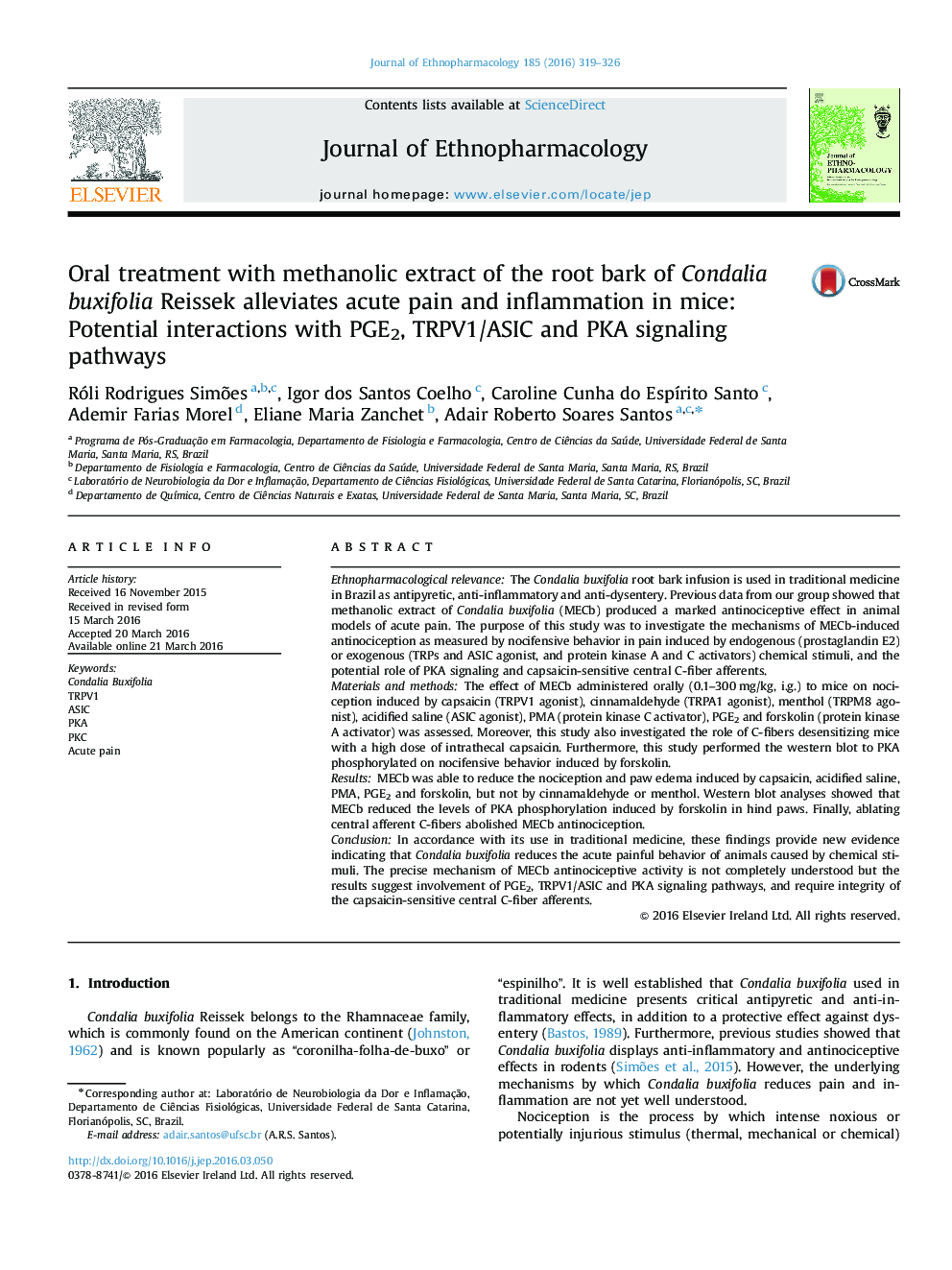| کد مقاله | کد نشریه | سال انتشار | مقاله انگلیسی | نسخه تمام متن |
|---|---|---|---|---|
| 2544849 | 1560377 | 2016 | 8 صفحه PDF | دانلود رایگان |

Ethnopharmacological relevanceThe Condalia buxifolia root bark infusion is used in traditional medicine in Brazil as antipyretic, anti-inflammatory and anti-dysentery. Previous data from our group showed that methanolic extract of Condalia buxifolia (MECb) produced a marked antinociceptive effect in animal models of acute pain. The purpose of this study was to investigate the mechanisms of MECb-induced antinociception as measured by nocifensive behavior in pain induced by endogenous (prostaglandin E2) or exogenous (TRPs and ASIC agonist, and protein kinase A and C activators) chemical stimuli, and the potential role of PKA signaling and capsaicin-sensitive central C-fiber afferents.Materials and methodsThe effect of MECb administered orally (0.1–300 mg/kg, i.g.) to mice on nociception induced by capsaicin (TRPV1 agonist), cinnamaldehyde (TRPA1 agonist), menthol (TRPM8 agonist), acidified saline (ASIC agonist), PMA (protein kinase C activator), PGE2 and forskolin (protein kinase A activator) was assessed. Moreover, this study also investigated the role of C-fibers desensitizing mice with a high dose of intrathecal capsaicin. Furthermore, this study performed the western blot to PKA phosphorylated on nocifensive behavior induced by forskolin.ResultsMECb was able to reduce the nociception and paw edema induced by capsaicin, acidified saline, PMA, PGE2 and forskolin, but not by cinnamaldehyde or menthol. Western blot analyses showed that MECb reduced the levels of PKA phosphorylation induced by forskolin in hind paws. Finally, ablating central afferent C-fibers abolished MECb antinociception.ConclusionIn accordance with its use in traditional medicine, these findings provide new evidence indicating that Condalia buxifolia reduces the acute painful behavior of animals caused by chemical stimuli. The precise mechanism of MECb antinociceptive activity is not completely understood but the results suggest involvement of PGE2, TRPV1/ASIC and PKA signaling pathways, and require integrity of the capsaicin-sensitive central C-fiber afferents.
Figure optionsDownload high-quality image (359 K)Download as PowerPoint slide
Journal: Journal of Ethnopharmacology - Volume 185, 5 June 2016, Pages 319–326